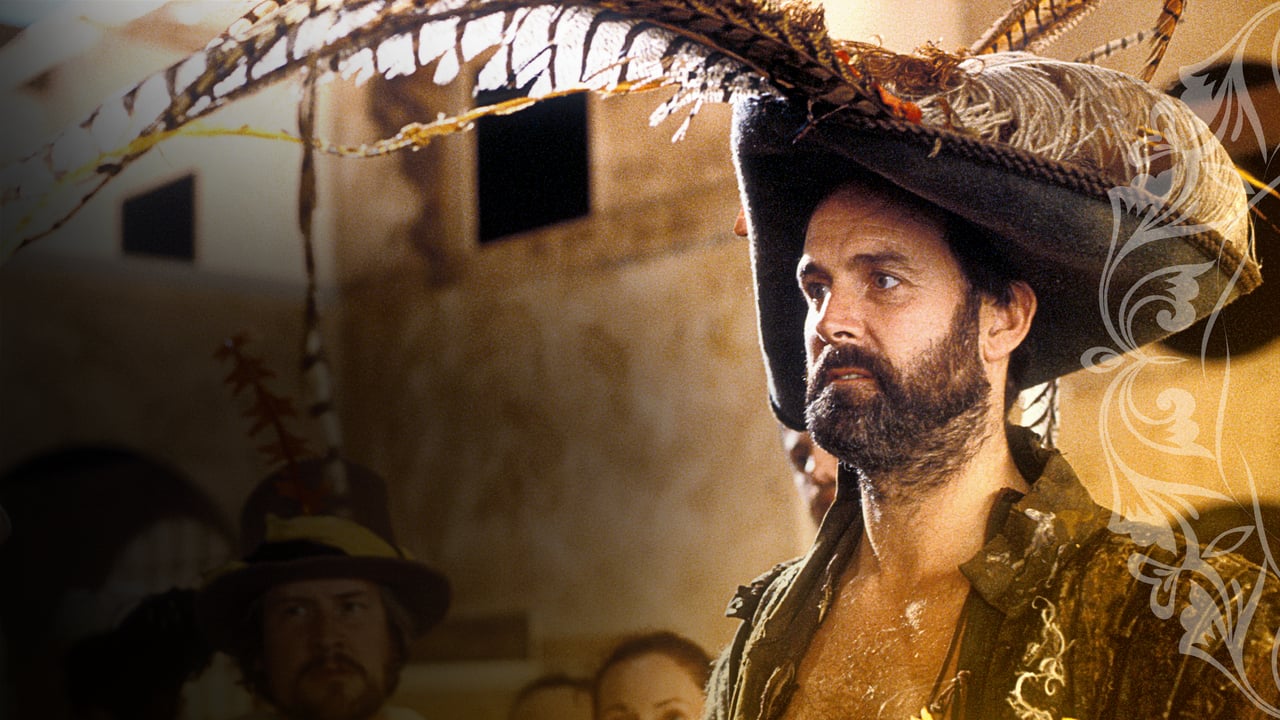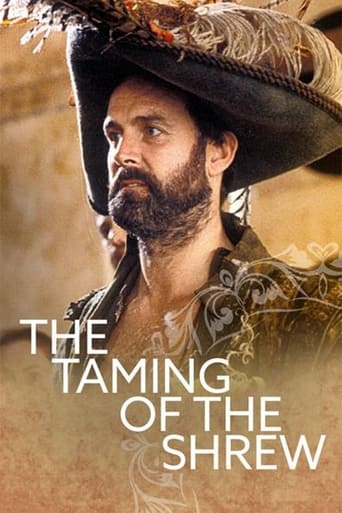

The greatest movie ever made..!
... View MoreThat was an excellent one.
... View MoreDid you people see the same film I saw?
... View MoreOne of the best movies of the year! Incredible from the beginning to the end.
... View MoreThis is not one of Shakespeare's more popular comedies, because of the inherent misogynism of a story about a cocksure rich man slowly subjugating a childish woman. The first stage show I saw of this play actually reversed this dynamic, with the woman overpowering the man, and the recent Old Vic production saw an all-male ensemble take on the play with successful results.This one is actually very good, despite of the usual BBC budget limitations imposed on it. The acting all round is excellent with the story very well conveyed. The standout has to be John Cleese, who subverts his usual bumptious comic persona to deliver a surprisingly compassionate portrayal of Petruchio. He is well-matched by Sarah Badel's Katherine, whose unbearable stroppiness mellows under his influence.An effective take on a much-maligned stage play.
... View MoreI recently studied this play in Brit Lit, and I definitely think that even though this version might be a little slower than the Zefferelli version, it is better. The Zefferelli version reverts back to the physical, cheap humor that Shakespeare obviously steers clear of, because in his day there were a number of those kinds of plays out there, but they were cheap, superficial plays. Also, Zefferelli leaves out the falcon soliloquey. I think that John Cleese is just a genius with comedy, and I am also a big fan of Frank Thorton. Besides that, I think that the makers of this film understood the real themes of Taming, and tried to portray them in the movie, as opposed to Zefferelli, who added extraneous things to make it more "amusing", but thus led it further away from Shakespeare's true meaning.
... View MoreThe first review of this production is right on. It's hard to believe that a cast member from "Beyond the Fringe" (Miller) and one of the great Python men (Cleese) could put together such a slow, unrewarding, uninteresting performance.
... View MoreJonathan Miller manages to take all the fun out of this play - even the casting of John Cleese as Petruchio was a disaster. When this play was first broadcast on PBS, it was followed by an interview between Miller and Cleese, where they smugly compared their dismal version with that of Franco Zeffirelli, who they thought was much to blame for filling his film with high spirits and humorous images. Don't show the Miller/Cleese version to your children, unless you want to kill dead any interest in Shakespeare they might be developing.
... View More